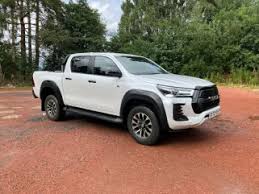Following the Autumn Budget, tax reforms on double cab pickup trucks are set to reshape how these vehicles are classified, taxed, and ultimately purchased by small businesses from April 2025. Until now, double cab pickups have been taxed in a way that made them attractive for business owners, often categorised as commercial vehicles eligible for more favourable tax treatments. However, the new tax measures could bring significant cost increases for these businesses.
The reclassification from commercial vehicles to passenger vehicles will make them subject to the higher tax rates, that are often used when taxing non-commercial vehicles such as cars.
If a business provides these vehicles to themselves as directors and/or their employees, the government may view them as personal benefits rather than a work necessity. When classified as a personal benefit, these vehicles are subject to a higher Benefit-in-Kind (BIK) Tax, which is designed to tax the value of non-salary perks provided to employees. The tax is calculated based on factors such as the vehicle’s market value, CO2 emissions, and the level of personal use permitted by the business. As a result of the reclassification, employers may see significant increases in BIK tax liabilities associated with providing double cab pickups, even if their primary use is for business activities.
This tax change could also affect VAT reclaim eligibility. If double cab pick-ups are not considered “wholly for business use,” the VAT deduction that many business owners rely on might be reduced or eliminated. Depreciation rates may also be adjusted, potentially reducing tax relief for these vehicles.
To avoid being affected by this change small businesses could, if the extra seating is not required, switch to single cab pick-ups as these are less likely to be reclassified. Vans, and other similar vehicles that are designed solely for business use, could also become a more popular option as they offer distinct advantages in terms of tax efficiency.
If you have any questions on how this change may affect you, feel free to contact us.



